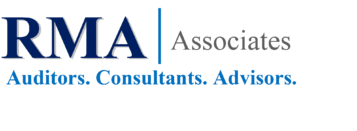Even high-performing workers may notice that something seems to be missing. Try these tips to feel more fulfilled.
1 August 2018
Do you ever feel like you’re just going through the motions?
As a coach, I am asked this question regularly by high-performing professionals, regardless of the status they have achieved or how well they are paid.
Another common sentiment is: “Sometimes I just feel like there must be more to my working life than this.”
Essentially it boils down to this: “What’s the point of it all?” And it’s typically accompanied by feelings of frustration or restlessness at work. It’s not meant as an existential question or a deep philosophical one, rather it’s an expression of purposelessness, of dissatisfaction and disconnection with things that matter.
You could be performing pretty well, managing the competing demands of multiple stakeholders in the business, and being effective at getting things done. But every now and again, you notice that something seems to be missing. This feeling can manifest itself in your attitude or your patience with others and, ultimately, in your performance.
It’s tempting to think that the answer is a career change, to find a “passion project”, to go solo and start your own consultancy firm, or maybe to join a not-for-profit and get more “mission-oriented”. But because things are generally fine, your analytical side tells you it would be madness to mess with a good thing and increase your exposure to risk. For the majority, a career change is probably not the answer.
A common misconception that amplifies this frustration and restlessness is that there is one job, one role, one purpose in life for each of us. If you miss it, you’ll be forever confined to going through the motions, settling for second best, and resigning yourself to the fact that you’ll never really feel fulfilled, so you’d better just get on with it. But this “one thing” concept is simply not true for the majority of people.
You don’t have to wait for your work to become meaningful, for a promotion, for a raise, or for a future career change. You have the power now to unlock a more purposeful version of yourself at work.
UNLOCKING A MORE PURPOSEFUL YOU
The first step is to figure out what you want and what matters to you. Then build a strategy to take actions every day that connect with what matters most, even if those actions are incredibly small ones.
Brendon Burchard, one of the most successful high-performance coaches (and, full disclosure, one of my coaches) talks a lot about finding clarity. “It’s about how you think about tomorrow and what you do to stay connected with what matters, today,” he explains.
To determine what matters most to you and then change what you do to boost your sense of purpose and of meaning, take the following actions:
- Identify your values;
- Take an inventory of your skillsets; and
- Recognise your interests.
Then, design your day — how you approach life, both in work and outside — to ensure that you do at least one thing that connects with each of those values, skills, and interests as often as possible. By planning time into your day to connect with what matters most to you, and by making sure you make time to grow, you can reignite a sense of purpose.
PUTTING IT INTO PRACTICE
Here are a few ways you can unlock a more purposeful you at work:
Write out a statement of personal purpose
This statement is a simple sentence about how you choose to live every day. Shorter is definitely better. Make it specific, jargon-free, and expressive. Make sure it reflects your values, skills, and interests. Here’s mine: “To inspire and equip individuals and organisations to be the best version of themselves”.
Now, put a reminder in your phone for this statement to pop up at strategic points throughout your day. As a prompt it is very powerful. Why not try it and see what changes for you?
Revisit your organisation’s highest goal
What is your organisation’s primary objective? Is there some aspect of what your organisation is doing that inspires you?
Take a few moments each morning to reflect on how what you do directly contributes to your organisation’s achieving this objective. For example, how vital is your commitment to accuracy and detail to the effectiveness of your organisation?
If this proves tough, then try to answer this practical question instead: “What would not happen if you didn’t show up for work and no one took over your tasks?”
If your organisation’s primary objective doesn’t inspire you, think about its wider impact. What is your organisation doing to contribute to a greater good? Perhaps that’s investing in employee development, going carbon-neutral, or directly supporting a philanthropic effort such as ending childhood hunger or combating illiteracy. Where can you get more involved with one of these initiatives?
Re-engineer your role
Spend some time listing what you most love and most hate about your role. Then see if you can make a few adjustments. What more can you do in your role to make a greater contribution to your organisation’s highest goal? Academics call this “extra-role behaviour” or doing something that falls outside your position’s stated duties. It contributes massively to how valuable we consider our personal connection to our organisation’s objectives to be, and it augments our own sense of purpose and meaning.
Maybe there are things you could delegate so that you can focus more on these “connected activities”. You may never get out of quarterly financial reporting, but can your direct report alleviate some of your duties in exchange for your taking on greater responsibility in another domain?
Reframe your role
“The power of reframing things cannot be overstated,” asserts Rory Sutherland, vice-chair of Ogilvy UK, in his insightful TED talk. Sutherland demonstrates that how we frame context, and how we define our perspective, determines the value we place on something.
Research conducted by Amy Wrzesniewski, a professor of organisational behaviour at the Yale School of Management, and Jane E. Dutton, a professor of business administration and psychology at the University of Michigan, reinforces this position. They advocate “job crafting” — or informally giving yourself a title that more creatively connects with the outcomes you are committed to delivering.
Professors Adam Grant and Dan Cable found similar outcomes in what they call “self-reflective” job-titling. Grant is a professor of management at the University of Pennsylvania’s Wharton School, an expert in organisational psychology, and an author. Cable is the chair of the organisational behaviour faculty at London Business School. “Rather than viewing titles solely as sources and reflections of formality and rigidity or mechanisms of bureaucratic control, our research suggests that titles can be vehicles for agency, creativity, and coping,” they conclude.
Although this suggestion may appear playful at first, the research demonstrates how powerfully it can affect how much purpose and meaning you feel at work. So why not give yourself a new (unofficial) title more directly connected with who is served by what you do, who is affected by the quality of the work you do, what you do well, and the value you create?
At Delivering Happiness, a coaching and consulting company, for instance, “money maestro” is the title for the accounting manager. It is definitely a role of orchestration, especially with pay scales, budgets, and expenses.
A FINAL TAKEAWAY
Don’t ignore your role outside of the office. Beyond whatever your work role accomplishes, there is also meaning and purpose in what you do with what you earn.
I regularly prompt clients to find and express a “why” for their earning. Often this is really a “who” — for whom you provide security and opportunity when you do what you do. Actually taking the time to reflect on this may be sufficient to reinvigorate you and reinstil a sense of purpose and meaning from your work. Again, use the reminder app on your phone to display this prompt strategically throughout the day to make this more explicit.
Sometimes the reason we don’t feel purposeful in work, or feel that our work has little meaning, is that we have simply forgotten. Now is the time to remind yourself of who you are, who you want to become, and who benefits from that.
Article via Financial Management




No responses yet